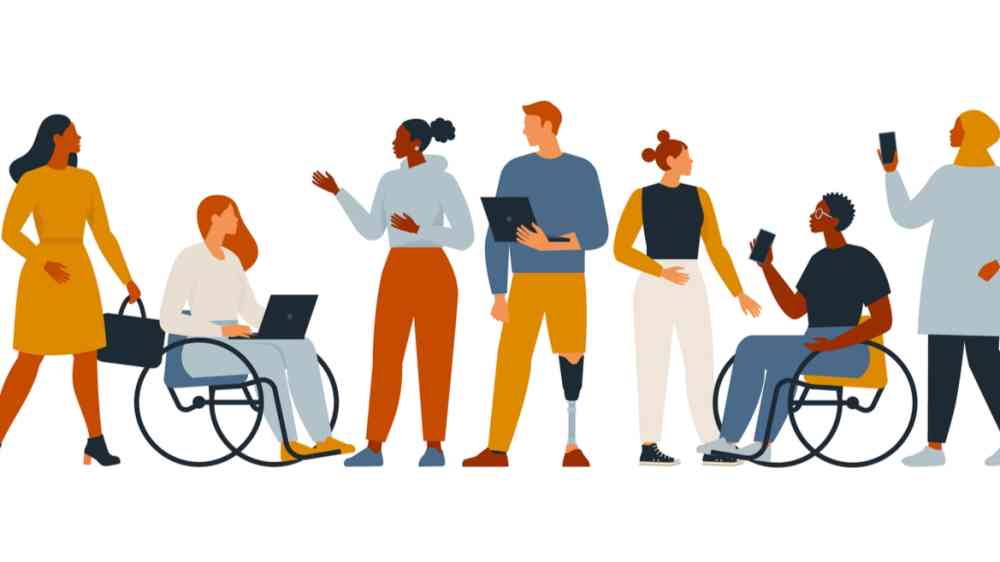Enabling inclusive emergency preparedness and response in Romania

Determined to protect lives and livelihoods in a country prone to disasters such as earthquakes and floods, Romania has been making tremendous headway in strengthening its emergency preparedness and response (EP&R) system.
Yet, despite this progress, for the nearly 900,000 people living with disabilities across Romania, who represent 4 percent of the country’s population, safety and well-being in the aftermath of a disaster or emergency is far from certain. As revealed by focus group discussions and consultations on the ground, the country’s EP&R system is inadequately prepared to respond to the needs of persons living with disabilities.
GFDRR and the World Bank have been on the front lines of supporting Romania in ensuring that its EP&R system is inclusive and does not leave people living with disabilities behind. This support has been provided under the auspices of the Japan–World Bank Program for Mainstreaming Disaster Risk Management in Developing Countries.
Working closely with a range of partners such as the Association of the Blind in Romania (ABR), the National Association of the Deaf in Romania (NADR), the National Red Cross Society of Romania – District 6 Branch, and the Romanian National Authority for the Protection of the Rights of Persons with Disabilities (ANPDPD), the team has provided support toward the development and implementation of training activities for first responders—including firefighters, policemen, and paramedics— on how to interact with persons living with disabilities in an emergency situation.
So far, nearly 130 first responders, of whom 30 are women, from the Romanian Department for Emergency Situations, the Romanian General Inspectorate for Emergency Situations, and the General Directorate of Social Assistance of the Municipality of Bucharest, among other agencies, have participated in training activities spanning critical topics such as interacting with people who are blind or visually impaired and communicating in sign language. The development of the specific curriculum for each topic was informed by a pre-training survey with the participants.
A key highlight of the training activities was that they were led by persons living with disabilities who shared insights, drawing on their own firsthand experiences. These trainers shared personal stories and practical knowledge about their needs and abilities in emergency situations, providing valuable lessons that went beyond theoretical concepts. This approach not only enhanced the empathy and understanding of first responders but also challenged stereotypes, fostering respect for diverse abilities and perspectives. The trainers’ involvement hammered home the point that people with disabilities are agents for building their own resilience, including as educators, and are not merely recipients of assistance. Additionally, the training’s hands-on approach, which featured role-playing exercises where participants guided blindfolded partners, offered real-world learning for the participants, thus deepening the impact of the training. At the same time, the training activities also provided the participants, now much more acquainted with the needs and abilities of persons living with disabilities, with practical tips and guidance for how to interact with them in an emergency situation. For example, the training on communicating in sign language taught first responders that it might be helpful for them to create predefined messages in their tablets or mobile phones so that they could much more easily communicate with people with hearing disabilities.
Based on surveys conducted with the participants, there is every indication that the training activities have, in fact, borne fruit in terms of their ability to interact with persons living with disabilities.
Eighty percent of participants found that the training activities improved their understanding of the specific vulnerabilities and needs of persons living with disabilities, while 64 percent said that they would be likely to apply knowledge and skills from these activities in their work. Buoyed by the promising results, it is anticipated that the training activities for first responders that took place in Bucharest will be scaled up significantly in fiscal year 2024, to 10 counties, by training more first responders and expanding the technical offerings to include guides for interacting with people with intellectual disabilities. ANPDPD is a key partner in expanding this support.
GFDRR and World Bank support under this engagement are only one part of an ever-deepening partnership with Romania on inclusive EP&R. For instance, support has also been provided toward the Safer, Inclusive and Sustainable Schools project currently under implementation, as well as toward advancing gender inclusion by informing the design of modern and universally accessible new fire stations under the Strengthening Disaster Risk Management project. Support through GFDRR also encompassed earthquake preparedness activities for students living with disabilities as well as teachers and staff. Across five schools, nearly 90 students and over 200 teaching and nonteaching staff have participated in these activities thus far. Looking ahead, GFDRR and the World Bank expect to work closely with the Romanian government to explore ways to further advance the inclusive EP&R agenda, including in the context of a second Catastrophe Deferred Drawdown Option (Cat DDO) operation for the country, which is currently in the pipeline and slated to include a focus on enhancing preparedness for persons living with disabilities. The Cat DDO is a contingent line of credit providing immediate liquidity in the aftermath of a disaster or emergency while supporting policy actions designed to strengthen a country’s disaster risk management capacity.